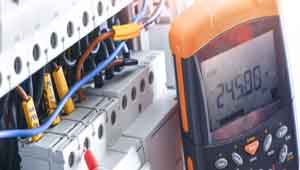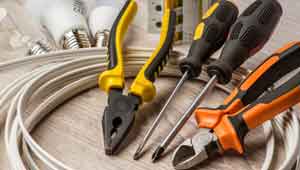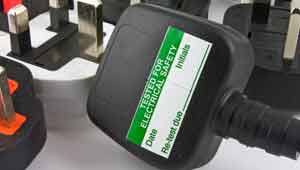Electricity at work Regulations
Electricity is dangerous, so safety should always be paramount when working with it. Representing a serious hazard, with the potential for fatal consequences, electricity needs to treated seriously and correctly. And working with electricity isn’t simply the preserve of electrical engineers, anyone who uses electrical devices is classed as working with electricity e.g. office workers, students and factory staff. Therefore, the dangers of electricity can impact everyone; accordingly, a number of regulations have been put in place to erect safety barriers.
Are electrical regulations law?
To protect people from the many hazards associated with electricity, the following regulations have been established:
H&S legislation specific to electrical work
-
Health and Safety at Work
one of the most important regulations for employers is the Health and Safety at Work act. This legislation states that employers are responsible for guaranteeing the safety of their employees, and any members of the public, from any risks posed from their work activities. Whilst it is not a legally binding act, every business needs to have a health and safety policy in place, and this will include working with electricity.
-
Electricity at Work Regulations
- Electrical safety should be a major concern of any employer and the Electricity at Work regulations cover all uses of electricity in the workplace. The regulation states that employers must ensure that their electrical systems are constructed safely, regularly maintained and can be worked on safely. The main objective of these regulations is to prevent death and injury from any electrical causes whilst in the work environment.
- BS 7671: electrical wiring is a crucial part of any electrical system, but it needs to adhere closely to safe and proper standards. The BS 7671 wiring regulations sets out national standards which relate to fixed electrical cabling and also covers procedures for testing this cabling. This regulation applies to domestic, commercial and industrial installations and covers work such as installing new electrical circuits, replacement of fuse boxes and minor electrical works. Failure to comply with BS 7671 can lead to prosecutions.
- Electrical Installation Condition Report (EICR): electrical devices can develop faults whilst showing little to no visible evidence of an issue. Therefore, it’s important that electrical devices are tested and evaluated to determine their safety. The EICR is a document produced by a qualified electrician and covers both visual inspections and more in-depth testing such as live and dead testing to confirm the presence of faults. An EICR is not a legal requirement, but it is recommended to demonstrate a concerted compliance with safety.
Electrical Equipment (Safety) Regulations
Electrical safety can be a minefield of regulations which are difficult to navigate for those who aren’t experienced within the electrical industry. However, whether you are a property owner or an employer, it is your duty to provide a safe environment.
Although not every legislation is a legal requirement, it makes sense to demonstrate an understanding of how critical it is to follow these procedures. Ultimately, working with a reputable electrical contractor is the best way to satisfy all existing regulations and maximise your electrical safety.
For additional articles on Electrical Safety please visit our main BLOG page here





